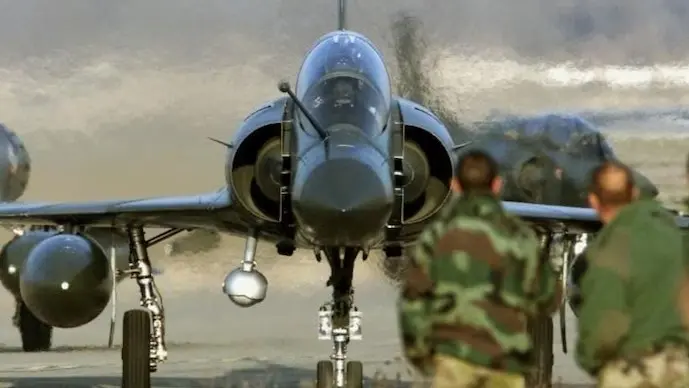Updated 14 February 2024 at 12:08 IST
Pulwama Attack 5th Anniversary: What Happened on Feb 14 And How India Gave It Back to Pak Terror
In one of the deadliest terror attacks on Indian security forces, on February 14, 2019, a suicide bomber rammed an explosives-laden SUV into a CRPF convoy.
- Deep Reportage News
- 3 min read

Pulwama Attack: In one of the deadliest terror attacks on Indian security forces, five years ago, on February 14, 2019, a suicide bomber rammed an explosives-laden SUV into a convoy of Central Reserve Police Force (CRPF) personnel, claiming the lives of 40 bravehearts.
The convoy of CRPF personnel carrying over 2,500 jawans was heading to deployment areas when the horrific incident unfolded. The dark day ignited nationwide outrage, leaving a deep sense of loss among the citizens.
At Latoomode of Awantipora in Pulwama, an explosive-laden vehicle entered the Jammu-Srinagar highway from a left bylane, overtaking a bus, fifth in the CRPF convoy, and exploded. The bus was blown to smithereens soon after the blast. Reported revealed that the sixth bus in the convoy was impacted by the explosion.
Around 40 CRPF jawans lost their lives, 39 on the fifth bus and one from the ROP. Five more men on the sixth bus were injured. The attack, attributed to Pakistan-based and aided terror organization Jaish-e-Mohammed (JeM), was led by an internationally proscribed terrorist, Masood Azhar.
Advertisement

India's Strongest Protest, Counter Attack
Tensions brewed between India and Pakistan following the Pulwama attack. In the subsequent action, India summoned Pakistan's top envoy and lodged a strong protest with Prime Minister Narendra Modi asserting that security forces have been given free-hand to decide the timing, place, and nature of their response to the Pulwama terror attack.
India initiated extensive diplomatic efforts to designate JeM chief Masood Azhar as a global terrorist, which became a reality on May 1 when China lifted its technical hold on a proposal introduced by the US, the UK, and France in the 1267 Committee of the UN Security Council.
Advertisement
In response to the attack, the Indian Air Force (IAF) struck the JeM camp in Balakot around 12 days after the Pulwama incident on February 26. The IAF jets bombed the JeM camp in Balakot, in Pakistan's Khyber Pakhtunkhwa.
"In an intelligence-led operation in the early hours of today(Feb 26), India struck the biggest training camp of JeM in Balakot. In this operation, a very large number of JeM terrorists, trainers, senior commanders, and groups of jihadis who were being trained for fidayeen action were eliminated. This facility at Balakot was headed by MAULANA YOUSUF AZHAR (alias USTAD GHOURI), the brother-in-law of MASOOD AZHAR, Chief of JeM," the then Foreign Secretary said in a press conference later in the day.
In counter to India, Pakistan on February 27 attempted a strike at military installations in Jammu and Kashmir. However, the Indian security forces thwarted the attack with intelligence and military power. Amid action, Wing Commander Abhinandan Varthaman piloting a MiG-21 Bison aircraft shot down a much-advanced F-16 of PAF but his aircraft was also hit and upon ejection, his parachute landed in PoK.
He was taken captive by the Pakistani Army. India's global connection created much international pressure on Pakistan, leading to the release of the IAF pilot two days later, who returned to India with a heroic welcome.
Published By : Surabhi Shaurya
Published On: 14 February 2024 at 12:08 IST
